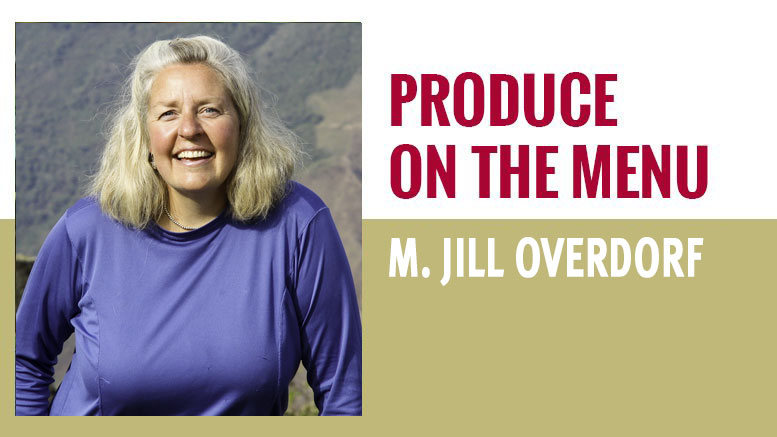Get Your Boots Dirty: Benefits of Field Visits for Chefs, Produce Managers and Buyers
July 25, 2025 | 4 min to read
Field visits are essential for chefs, produce managers, and buyers to strengthen their connection between the field and the fork. By experiencing agricultural innovation firsthand, they gain insights into sustainability, enhance their storytelling, and build trust with consumers. As noted by Sarah Evanega and Jamie Phillips, these visits inspire culinary creativity and cultivate partnerships that transcend transactions, thus reinforcing a shared commitment to quality and sustainability. Ultimately, understanding the journey of fresh produce enriches dining experiences and fosters deeper consumer appreciation.

In an era where transparency and authenticity are key drivers of consumer trust, the connection between the field and the fork has never been more critical. For chefs, produce managers, and buyers, visiting the fields where their fresh produce is grown provides an opportunity to deepen their understanding of the agricultural processes, enhance their storytelling, and align with growers on shared values of sustainability, innovation and quality.
Field visits enable culinary professionals and buyers to observe agricultural innovation firsthand. Sarah Evanega, vice president of business development, Okanagan Specialty Fruits, emphasizes the impact of such experiences, “As the adage goes, seeing is believing. Opening our orchards and operations to customers allows us the opportunity to showcase the innovative and sustainable practices we are implementing.”
Grower visits offer chefs, produce managers, and buyers an opportunity to engage directly with the people behind the produce, and gain a deeper understanding of the challenges and triumphs faced by growers.
Modern agriculture is a fascinating blend of tradition and cutting-edge technology. Jamie Phillips, director of food services, Del Mar Union School District, San Diego, CA, recounted his experience during a grower visit: “Witnessing the future of agriculture in action, particularly the self-automated drones, was absolutely fascinating — it’s incredible to see such advanced technology streamlining crop monitoring.”
Technology in agriculture extends beyond drones. Innovations like precision farming, automated harvesting equipment, and climate-controlled greenhouses showcase how science and engineering are transforming the agricultural landscape. Seeing these innovations in action provides a broader context for understanding the complexities of modern farming and the effort required to produce high-quality, consistent crops.
TRUST AND TRANSPARENCY
Transparency in the food industry is not just a trend but a necessity in today’s marketplace. Consumers want to know where their food comes from, how it is grown, and whether ethical and sustainable practices are followed.
Field visits empower chefs, produce managers, and buyers to answer these questions with confidence, backed by firsthand experiences. This transparency can become a powerful marketing tool, differentiating brands and establishments in a competitive market.
Field visits also serve as a powerful tool for relationship building where everyone can exchange insights, discuss challenges, and collaborate on solutions. These relationships often translate into stronger partnerships, better communication, and a shared commitment to delivering the highest quality produce to consumers.
Partnerships forged in the fields often go beyond transactional relationships. For example, chefs may provide feedback on flavor profiles or presentation aspects that are valuable in creating new varieties or refining existing ones. Growers can educate chefs and buyers about the nuances of specific crops, such as optimal storage conditions or preparation techniques, ensuring the produce is showcased at its best.
CULINARY CREATIVITY
For chefs, walking through the fields can spark inspiration, offering new ideas for menu items that highlight the unique qualities of fresh produce. Understanding the seasonality, flavor profiles, and growing conditions of specific crops can lead to innovative dishes that tell the story of the farm’s journey to the table.
The sensory experience of visiting a farm — seeing the vibrant colors, smelling the fresh soil, and tasting produce straight from the vine or the field — can ignite a chef’s imagination.
These experiences translate into menus that are not only delicious but also deeply connected to the origins of their ingredients. Highlighting these connections on menus or in retail settings, through storytelling or visual aids, can enhance the dining experience and create a deeper appreciation for the food being served.
SUSTAINABILITY GOALS
Sustainability is a core focus for both the agriculture and foodservice industries. Field visits provide an opportunity to observe sustainable farming practices in action.
Chefs, produce managers, and buyers can take these lessons back to their own operations, incorporating sustainability into their practices and advocating for environmentally responsible choices.
Ultimately, the value of field visits lies in the ability to connect the field to the table in a meaningful way. By bridging the gap between growers and buyers, these experiences create a shared understanding and appreciation for the journey of fresh produce.
The produce industry thrives on authentic connections, and field visits are a vital link in this chain. As industry leaders have shown, these experiences are invaluable for chefs, produce managers, and buyers, providing them with knowledge, inspiration, and a renewed appreciation for the work and science of farming.
In turn, these connections elevate the dining experience, foster consumer trust, and reinforce the shared commitment to sustainability and innovation.
Field visits are not boondoggles; they are transformative experiences that shape the way chefs, produce managers, and buyers approach their work. By understanding the origins of their fresh produce ingredients, they can craft menus, displays, and stories that build trust with consumers, advocate for sustainable practices, and highlight the shared effort behind every bite.
Field visits offer a unique opportunity to connect with the heart of food — the land and the people who nurture it. Go get your boots dirty!

M. Jill Overdorf is founder and president of The Produce Ambassador, which provides strategic insight, brand development, and innovative solutions for the foodservice, produce, hospitality and culinary sectors.
16 of 23 article in Produce Business July 2025

